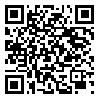BibTeX | RIS | EndNote | Medlars | ProCite | Reference Manager | RefWorks
Send citation to:
URL: http://ijme.mui.ac.ir/article-1-4254-en.html
Introduction: Meaningful learning is an important factor in promoting creative thinking, critical thinking and problem-solving abilities in learners. Thus, the purpose of this study was to compare the effects of pediatric nursing teaching in the forms of lecture, e-learning and concept mapping on the cognitive levels of recalling, comprehension and application.
Methods: This research was a quasi-experimental study with a three-group, pre-test post-test design. Sixty-four 5th-semester nursing students were selected through census method and randomly divided into experimental and control groups. For the third group, half of the students from both classes, who were familiar with and had access to internet, were selected randomly and purposively. After the pre-test, the control, experimental and e-learning groups received training using lecture, concept mapping and e-learning methods respectively for four sessions over a one-month period. Then, the post-test was taken and four weeks after that, the recall test was performed. Data were collected using a research-made academic achievement test. The results were analyzed using ANOVA, chi-square, independent and paired t-tests.
Results: All three methods of lecture (t=-2.41, p=0.02), e-learning (t=-1.45, p=0.17) and concept mapping (t=-2.19, p=0.04) were effective in enhancing students’ knowledge and learning. However, meaningful learning and the mean scores of pre- and post-tests were statistically significant only for the concept mapping method (15.16±1.37, 17.44±1. 58, t=-5.45, p<0.001).
Conclusion: Since the concept mapping method was more effective than the other two methods in students’ achieving higher levels of learning and meaningful learning, it is suggested that this method should be employed more in nursing education.
Received: 2016/10/16 | Accepted: 2017/03/6 | Published: 2017/10/25 | ePublished: 2017/10/25
| Rights and permissions | |
 |
This work is licensed under a Creative Commons Attribution-NonCommercial 4.0 International License. |




